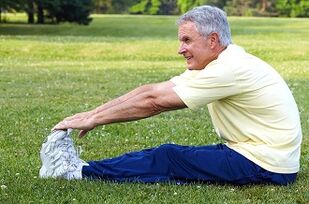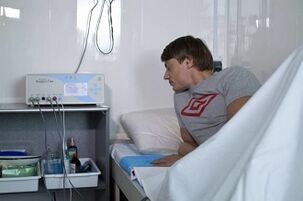Effective treatment of prostatitis in men will only be done if the man pays attention to all his recommendations and treatment thoroughly. Chronic prostatitis ranks first among diseases of the reproductive system in men of reproductive age. A common cause of prostatitis is a sexually transmitted pathogen. The disease becomes “younger” every year and it is no longer surprising to meet a young man with such a pathology.
Can men get rid of chronic prostatitis?
Everyone who suffers from prostatitis is tormented by the question of the effectiveness of treatment, because the disease not only brings physical discomfort, but also moral. Often men with prostatitis experience depression.
When asking for help from a urologist, the doctor tries to provide the right treatment that suits your body, taking into account all the nuances and the presence of other chronic diseases.
For comprehensive treatment, it is necessary to include a conservative approach such as:
- Drug treatment.In this case, medications are prescribed to help get rid of chronic prostatitis.
- Physiotherapy.This includes a set of exercises that a man should do regularly, even after recovery.
- Manual therapy,which is considered an important part of treatment. Contraindications to bacterial prostatitis.
For effective prostatitis treatment, research must be conducted:
- Visit other experts and get suggestions and advice. The following are considered mandatory: neuropsychiatrists, endocrinologists and cardiologists.
- Performing brain tomography to find out that its function, performance and structure are normal.
- Special attention is paid to hormone levels, special tests are performed.
- Ultrasound examination of the genitourinary system is performed.
It should be noted that the disease may not be symptomatic or remission. If this is observed, then you must immediately seek help from a specialist who knows how to treat prostatitis properly and what medication you should prescribe.
Terms of treatment can be from half a month or more, it will all depend on the stage of the disease at that time. All medications prescribed for treatment tend to lower blood pressure in the genitals, and as a result, medications are also prescribed that have a vasodilating effect.
What therapy can be used at home if chronic prostatitis?
If there is an increase in chronic prostatitis, you must follow all the recommendations prescribed by a specialist. It is important to spend more time in bed, completely eliminate physical activity, stop drinking alcohol and smoking.
After the exacerbation dies, the man must decide on a daily routine and work schedule for a long time.

To prevent the onset of chronic prostatitis, you should periodically adhere to the following recommendations:
- Men should not develop hypothermia. You can not sit on a cold surface. Clothes must be worn loose and light so as not to squeeze the genitals anywhere, be sure to suit the season. The best way for chronic prostatitis is hardening, which should be done daily.
- Do not tolerate the urge to urinate. It is recommended to visit the toilet every 3-4 hours, and this is not just during treatment.
- In inactive work, men must rest and walk, warming up every two hours. If there is no such opportunity, it is necessary to pull the anus up to sixty times in one approach, to do this exercise up to six times a day.
- Moderate physical activity in men, which helps treat prostatitis, not just with medications.
It prevents the worsening of disease and congestion in the pelvic organs. For men of any age, morning exercise must be part of their daily routine, as well as outdoor activities and daily walking.
- If you have prostatitis, you should stop cycling, horse riding and other traumatic activities.
- All men should have a regular sex life, which is also prescribed as a treatment. It works better than any medicine. The main thing is to exclude prolonged and disturbed sexual intercourse.
- Avoid obstacles. In such cases, it is necessary to immediately take laxatives.
- Men should get a complete rejection of alcohol and tobacco.
- Treatment should include the elimination of stressful situations from life.
- It is very important to visit a specialist at least twice a year, undergo clinical and TRUS examinations, and undergo tests.
What medications will help chronic prostatitis?
Bacteria and sexually transmitted infections are thought to be the cause of this disease. They can infect the urethra and penetrate the tissue of the prostate gland.
For chronic prostatitis, the following medications and preventive measures are prescribed:

- Painkillers. Non-steroidal anti-inflammatory drugs must be taken.
- Calming and antidepressants.
- Restoration of urine production thanks to diuretics.
- Douching is set.
- Physiotherapy treatment.
- Targeted drugs - antibiotics.
- Surgical intervention, indicated in case of narrowing of the urethra and prostate abscess.
The course of treatment of prostatitis with antibiotics can justify all expectations and last no more than two weeks, after which repeated tests are performed and, in general, there is a positive tendency in men.
They are used because prostatitis is an infectious disease. Antibiotics only help if the doctor has chosen the right medication.
Also, often for this disease, the following forms of medication may be offered:
- Candles. They help anesthetize and disinfect.
- Injection.
They help to get the drug into the body quickly and, in the shortest possible time, affect the inflammatory process. Stimulates the immune system.
- Sower. It is used only with an empty bladder.
- Microclysters. Infusion and decoction of herbs is used. Be sure to use it with caution, especially if the body is prone to allergic reactions. Before use, be sure to consult a specialist.
- Tablets that have a broad spectrum of action and are prescribed if the causative agent of the disease has been accurately identified. Such drugs can be divided into three groups: tetracycline, penicillin, fluoroquinols.
Any disease, including chronic prostatitis, can be cured, you just need to choose the right treatment and medications that will have a positive effect on the prostate gland.
























